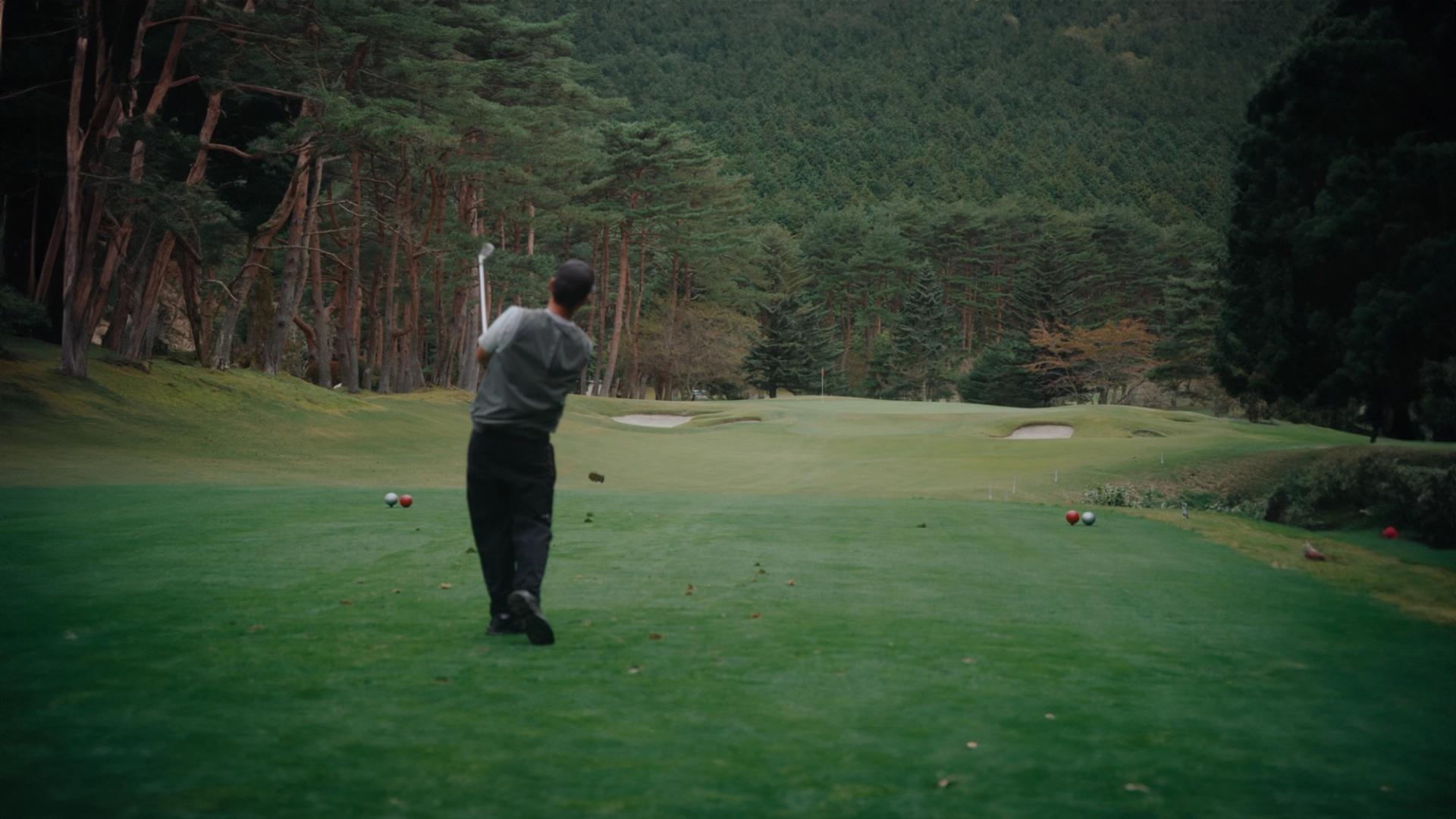
The Cost of Culture
The seat raises automatically as I open the bathroom stall at Kagosaka 36 Golf Club. Before the loo can even finish greeting me in Japanese, I sit on its face. I’ve got no time for pleasantries. Like so many before me, I’m here to answer the big questions.
What is wrong with us? Why are we so rude to each other back home? Could Londoners ever form an orderly queue for the Tube? Is it barbaric to rely on a thin sheet of paper to wipe my bottom instead of this warm, precise squirt of water? Relieved but philosophically shaken, I make my way to the first tee.
Everyone raves about Tokyo - rightly so - but no one prepares you for the existential gut punch. This clean and harmonious city of nearly 10 million is so exceptionally well-run it forces you to consider that this level of order is even possible.
After just a week in Japan the culture of respect and manners—not MANORS—is even starting to rub off on the team. At street corners, we no longer dart through gaps in traffic; we wait for the green man. And we’ve learned to carry our rubbish home. No street bins here, so you manage your own waste like a responsible citizen should.
We’ve even started policing one another. A rogue belch or a careless bump with a fellow pedestrian might once have prompted cheap laughs but now we respond with a shake of the head or a raised eyebrow and the phrase “Western Pig”. We find it a great deterrent to disrespectful behaviour, but some habits die hard…
“Here comes ol’ Liz Truss,” says Luke, mocking my not-so-“Trusty” driver. “Western Pig,” I mutter. I swing hard, over the top and left, with maximum swipe. The ball begins its great banana shape toward the right-hand trees. Ol’ Liz Truss is out of bounds at the first sign of trouble.
We’re playing Kagosaka 36 Golf Club just a few miles from Mount Fuji, but it’s rare to see her. Typically, wind sweeps across the mountains cooling rapidly and Fuji throws a thick white blanket over her surroundings. Today, the mist clings low and heavy, the pine trees hold it up like tent poles. It’s an otherworldly scene—something out of a Miyazaki film. Before long, we’re spirited away through the wrinkles and folds of the front nine.
As I tread over each perfectly placed blade of grass, it dawns on me: golf and Japan are a match made in heaven. Both are steeped in tradition and adhere to a quasi-religious code of respect and honour. Japan’s ancient philosophies—Shintoism, Confucianism, and Buddhism—form the moral backbone of a society where every detail matters and every action carries weight. Golf in Japan isn’t just a game—it reflects their way of being.
“This is Utopia.” I say to Shun, a local golf creator and our guide for the week. “Why do you want to move back to the States?”
“I love Japan—it’s amazing. But there are some things about America that are super exciting, that we don’t do so well here. In Japan, if you want to get a promotion as a young person, you have to wait your turn. It’s very structured and orderly. Japan’s economy is struggling, and the country is ageing. There are problems for sure,” says Shun.
For all the country’s incredible merits, Japan’s flaws are also well-documented. The phenomenon of hikikomori—where individuals withdraw entirely from society—affects an estimated 1.46 million people. The same reverence and societal pressures that uphold the country’s values and traditions also leave many people struggling to carve out a place within its tightly woven fabric.
It’s striking that the qualities that make Japanese culture worth preserving— reverence for tradition and commitment to excellence— also threaten to make it oppressive. It seems that Japan doesn’t just share golf’s virtues but also its vices. Both share an uncompromising obsession with heritage and values that can come at the expense of progress. No wonder Shun finds himself drawn to the bombastic freedom of the United States.
We press on and hole after hole of Kagosaka Golf Club passes with the time. On the 17th, I make a move, firing one long and down the middle. A wedge sets me up for birdie and the match.
We finish up and I head to the Onsen to wash the smug look from my face. I remove my robe, lowering my exposed form onto a small stool in front of the mirror where they keep the handheld shower. Like so many before me, I gaze at the mandatory and unfamiliar angle of my lower half and start to answer the big questions.
In my short time here, I’ve fallen in love with Japan. The country shows you perfect harmony and forces you to question your own. But beneath this utopia is a structure as stifling as it is protective. It’s a stark reminder that there is no perfect way. And that, despite our analogue toilets and overflowing bins, there is something beautiful in the comparatively reckless abandon of Brits and Americans. For every perfectly manicured fairway, we need a field of wildflowers. And whatever your beliefs, values, or culture, they come with a cost.